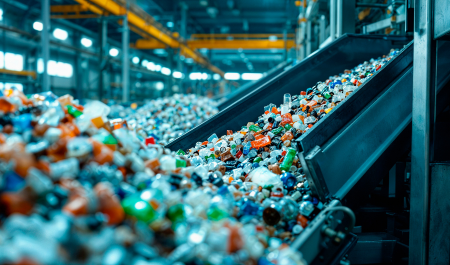
The selection of recycled or virgin polymers presents critical considerations regarding structural integrity, processability, and the longevity of the final product. This article breaks down the key differences between these two categories, emphasizing the implications for precision machining.
Virgin polymers, derived directly from petrochemical monomers, exhibit structural homogeneity that results in:
Recycled polymers, obtained from post-consumer or post-industrial waste, show natural variability due to:
Virgin Plastics: Characteristics and Advantages
Virgin polymers, derived directly from petrochemical monomers, exhibit structural homogeneity that results in:- Consistent Molecular Weight Distribution (MWD): MWD, an indicator of polymer chain length, is uniform in virgin polymers, ensuring predictable mechanical and thermal properties.
- Absence of Contaminants: Controlled synthesis minimizes the presence of impurities, preventing premature degradation and performance variability.
- Defined Crystallinity and Amorphism: The crystalline or amorphous structure, which influences rigidity and impact resistance, is strictly controlled in virgin polymers.
- Predictable Rheological Properties: Flow properties during processing, such as viscosity and melt index, are consistent, facilitating precision machining.
Recycled Plastics: Challenges and Considerations
Recycled polymers, obtained from post-consumer or post-industrial waste, show natural variability due to:- Variability in MWD: Recycling processes can cause polymer chain degradation, altering MWD and compromising mechanical properties.
- Presence of Contaminants: Sorting and cleaning of plastic waste do not completely eliminate contaminants, which can act as failure points or affect thermal stability.
- Altered Crystallinity: Melting and solidification cycles during recycling can modify the crystalline structure, affecting rigidity and fatigue resistance.
- Variability in Rheological Properties: The mixture of different types of polymers and thermal degradation can alter flow properties, complicating precision machining.
- Traceability Challenges: It is very difficult to know exactly what components are in the recycled material, and therefore, to predict its behavior.
Machining Implications:
- Dimensional Tolerances: Variability in recycled polymer properties can make it difficult to meet strict dimensional tolerances.
- Surface Finish: The presence of contaminants and altered crystallinity can affect the surface finish of machined parts.
- Durability and Strength: Degradation of polymer chains and the presence of contaminants can compromise the durability and fatigue resistance of parts.
Quality Control and Optimization of Recycled Polymers:
- Material Analysis: Characterization through infrared spectroscopy and size exclusion chromatography is essential to determine the viability of recycled polymers for specific applications.
- Process Adjustment: Optimization of machining parameters, such as cutting speed and depth, helps compensate for the variability in recycled polymer properties.
- Property Enhancement: The incorporation of additives and modifiers allows recycled polymers to be tailored for demanding applications.
- Assurance and Traceability: Obtaining certifications and maintaining traceability are essential to ensure the quality and origin of materials.







